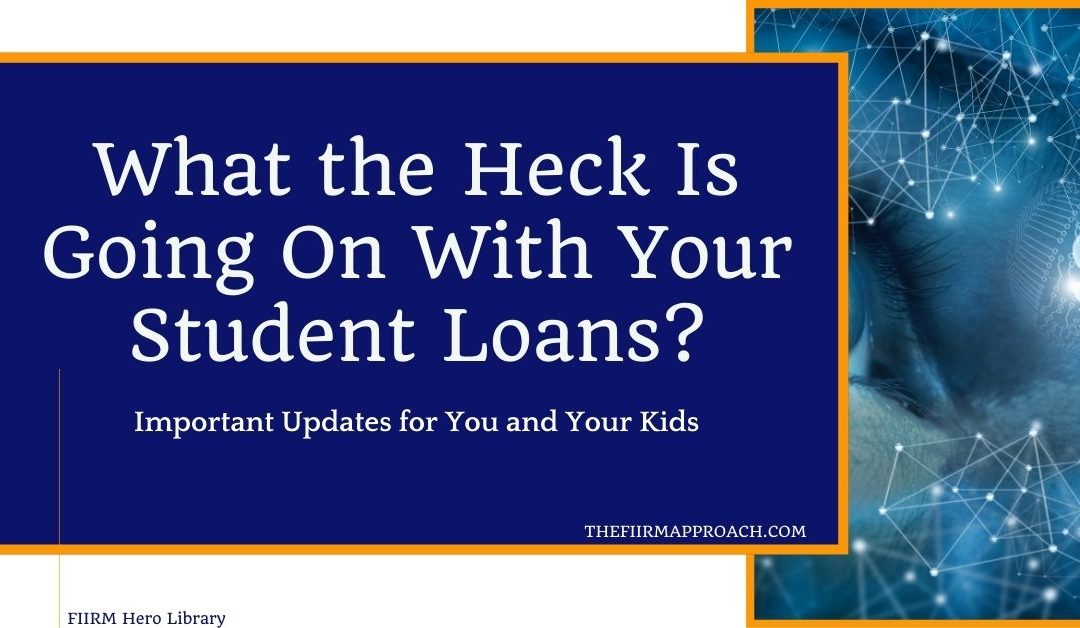
What the Heck Is Going On With Your Student Loans
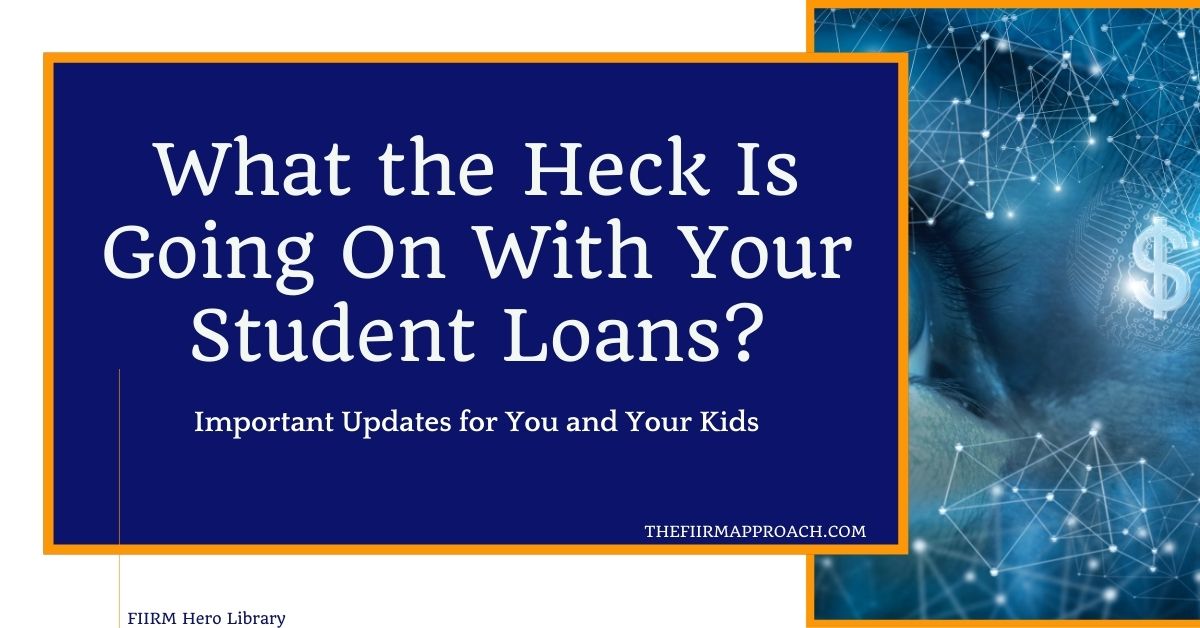
What the Heck Is Going On With Your Student Loans
What the Heck Is Going On With Your Student Loans
It’s possible your student loans are breaking up with you and you don’t have to pay them.
If you have them, this news may make you very happy.
If you don’t, this news may piss you off because you feel like someone is getting away with not paying their debt.
Also possible that you are reuniting with your student loan payments soon (and maybe that doesn’t feel so good).
Understanding what will happen with your loans depends on when you took them out, who loaned you the money, your marital status, and a few other factors.
Furthermore, if you have kids going away to college soon, their financial aid package may not be what you’re expecting.
Either way – just here to inform you.
Let’s take a look and see if you should care.
Student Loan Payment Relief
The Federal Student Loan dictators granted you grace and mercy by pausing payments and interest accrual on student loans in 2020 until January 31, 2022 , May 1, 2022.
While payment relief may be extended, yet again, beyond May 2022, I doubt they will extend much past the election this fall.
When the moratorium on payments, collection activity, and interest accrual ends, it’s important to know what might happen.
- Your payment amount may change (you might want to change your repayment plan if you’re able).
- Your payments may be automatically drafted depending on your unique circumstances and your servicer.
- Your servicer may be different (you should have received notice if you have a new servicer).
- Your interest rate will return to your pre-Covid rate unless you modified your loan during the pandemic.
- Collection activity may resume on defaulted loans.
It is highly likely that you need to take some action whenever the moratorium officially expires, so be prepared to log in to your account or contact your loan servicer sooner rather than later so there is no impact on your credit score or overall financial picture.
Added bonus: The months that you have been provided relief WILL count as qualifying months if you are applying for forgiveness under the Income-driven repayment plan (you made 20 years of qualified student loan payments) or public loan service forgiveness.
Speaking of loan forgiveness… see below.
Check the FAQ on the Student Aid site for official details.
Full Forgiveness of Your Navient Student Loans
According to Forbes and NBCNews, the Biden administration has helped make it much easier to get student loans forgiven, including the canceling of more than $9B of student loans for some borrowers.
This is one of the times when I feel like something is better than nothing. 😆
Additionally, Navient, a student loan servicer and collector, was sued for allegedly deceiving borrowers and providing subprime or risky loans. While Navient admitted no wrongdoing, they agreed to a settlement that will result in thousands of student loans being canceled/forgiven in 39 states, once approved by the court.
Given the number of people who have student loans, myself included, you will likely not be included in the pool of people impacted, however, here’s how you know if you are:
- Qualifying States/Residency for Forgiveness of Your Navient Student Loans: Borrowers with a military postal code or addresses in the following states as of June 30, 2021: AR, AZ, CA, CO, CT, DC, DE, FL, GA, HI, IA, IL, IN, KS, KY, LA, MA, MD, ME, MI, MN, MO, NC, NE, NJ, NM, NV, NY, OH, OR, PA, RI, SC, TN, VA, VT, WA, WI, and WV.
- Qualifying States/Residency for Forgiveness Your Navient Student Loans & Restitution Payments: Borrowers with a military postal code or addresses in the following states as of January 2017: AZ, CA, CO, CT, DC, DE, FL, GA, HI, IA, IL, IN, KY, LA, MA, MD, ME, MN, MO, NC, NE, NJ, NM, NV, NY, OH, OR, PA, TN, VA, WA, and WI.
- How Much Will Be Forgiven: Borrowers with addresses in the states listed above are expected to receive full forgiveness of their Navient loan.
- How Much is Restitution: Borrowers with addresses in the restitution states listed above are expected to receive a check for $260.
- What if I was paying my Navient loans on time: Loans made between 2002-2014 with more than 7 consecutive months of delinquent payments before June 30, 2021, are eligible for full forgiveness.
- Other important qualifiers: Loans made between 2002-2014 with more than 7 consecutive months of delinquent payments before June 30, 2021, AND the Borrower attended a for-profit school are on the Borrower Defense Loan List (e.g. DeVry, IIT) are eligible for full forgiveness.
If you don’t happen to fall in the categories mentioned above, you might still be eligible for loan forgiveness if you are a qualifying public service worker and have been previously disqualified for Public Service Loan Forgiveness as there is a limited opportunity to try again.
Added bonus: The loan forgiveness will be tax-FREE!
You can find out more about the Navient Forgiveness suit here.
Forgiveness details were compiled from the various attorney general and news sources. You are strongly encouraged to connect with your loan provider or research additionally to determine what actually applies to you.
Financial Aid Changes
I don’t know about you, but there is NO way I would have been able to go to undergrad without student loans.
I filed as an independent as soon as I could to get as much money as possible, because the only thing saved for me to go to college were well wishes. 😉
Maybe your kids are in a better situation than I was, but just in case you could use the help of grants and loans, you might want to know about some upcoming changes.
In addition to the FAFSA form being shortened, the government has made some changes to the way financial aid will work.
Here are two notable changes:
- A new formula has been established which will eliminate the benefit previously provided to households with more than 1 child in college. Starting in 2024-2025 school year, families will likely qualify for less financial aid due to this change.
- Eligibility for Pell Grants will be expanded to allow more students to qualify.
- Subsidized student loans will be available to students as long as they are enrolled, as the maximum 3-year time limit has been eliminated.
- The parent a student lived with for the 12 month period prior to a FAFSA submission was previously considered the custodial parent for financial aid purposes. As of the 2024-2025 school year, the parent who provided the most financial support for the student in the prior-prior tax year is the custodial parent. This means that for the 2024-2025 school year, the 2022 tax information will be considered for the custodial parent as determined by the new rule.
That last bullet point could have a pretty big impact on divorcing parents so you might want to take a look at the last part below.
Preparing for your child’s college expenses in your divorce
There are a couple of plans or agreements included in the divorce process and one of them could be a college support agreement. College support agreements may include specific information about who will be paying for tuition and school expenses, restrictions on maximum contributions, or even an agreement to give either parent the option to contribute to college expenses.
Common college support agreement stipulations can include:
- An equal split of expenses
- Split expenses based on a pro-rata share of the parents respective incomes (static or fluctuating)
- Lump-sum contribution of either parent
- Transfer of a marital asset to the child or trust established for the benefit of the student
- Contribution to a college savings account
- The expected/estimated financial contribution of the student and agreement to cover the shortfall
- Considerations for cosigning for student loans or obtaining Parent PLUS loans
I know that was a lot. My gut tells me that you will need to take additional action related to your own or your child or, at the very least, you’ll keep some of this information in your back pocket for when you might need it.

Nikki Tucker
Founder & Managing Director
Nikki is a 16-year financial services professional, a Certified Divorce Financial Analyst ®, and the primary divorce financial strategist for The FIIRM Approach. She helps female breadwinners prepare for divorce to avoid common financial mistakes and confidently maintain their financial security. She uses proven strategies within the FIIRM Approach methodology so her clients can manage their money, debt, and credit in their new financial life. TAKE ACTION & LEARN about the tools that can help make your new money life easier. Grab your FREE Ultimate Resource Guide HERE.
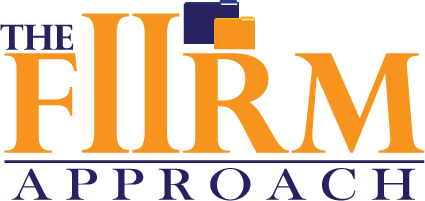
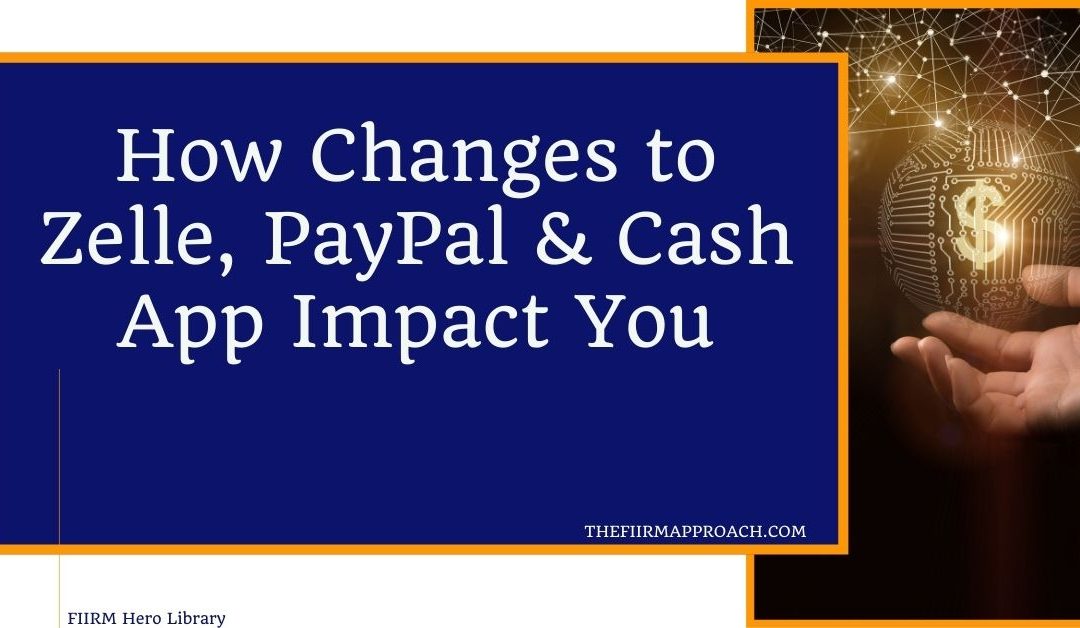
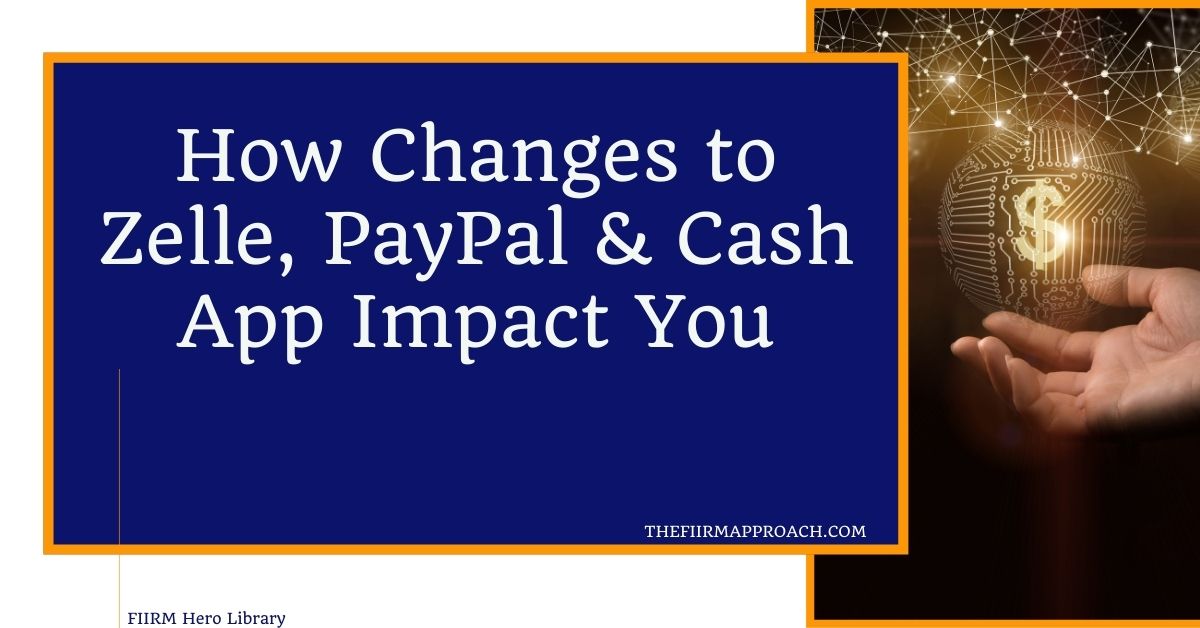
Recent Comments